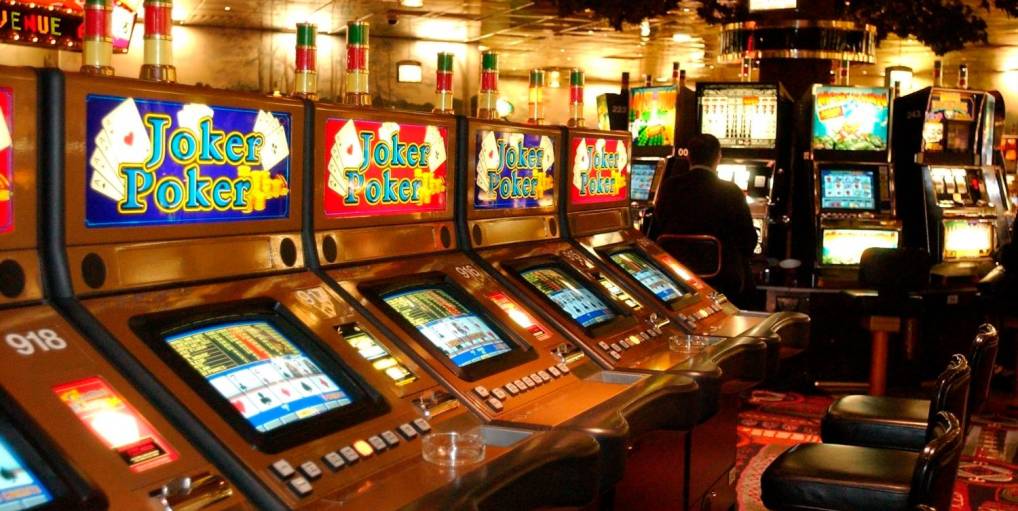Exploring Table Games: Beyond Randomness

When we think of gambling activities, the initial pictures that often cross our minds are those of rotating roulette devices, poker chips clattering on felt tables, and dice flying across a betting area. While numerous view these activities as mere hobbies fueled by chance, a more profound exploration reveals a fascinating blend of strategy, expertise, and community engagement that raises them well beyond basic chance. Regardless of whether you are a experienced player or a curious newcomer, understanding the subtleties of these activities can significantly enhance your enjoyment and understanding.
Casino activities have developed over hundreds of years, with different cultures contributing to their diverse histories and variations. From the intricate strategies of blackjack to the bluffing tactics in card games, players engage in a battle of intellect as much as a gamble on numbers. tin tức 78win This dynamic interplay between chance and expertise creates a thrilling atmosphere that draws countless people to gambling establishments worldwide. As we explore the world of table activities, we will uncover the methods that can tilt the odds in your advantage and the community aspects that make these games a favored choice for leisure and engagement.
The Approach Behind Casino Games
Casino gaming often combine a blend of skill and luck, which makes them fascinating for participants who enjoy a test. Every game has their unique set of rules and tactics that can affect the results. For example, in games like 21, participants are obliged to use strategies like card counting and grasping the probabilities to make smart decisions. 78WIN This skill set can greatly improve the winning potential, distinguishing seasoned players from novices who may depend entirely on luck.
In contrast, titles such as the roulette may seem to be entirely based on luck, but tactical thinking can also play into play. Participants can select between different wagering tactics, such as the Martingale system, where they raise their bets after a loss. This approach can establish a more controlled way to the game. Understanding the probabilities of specific wagers can also assist players make better decisions on the roulette table, showcasing that even titles of chance, tactics can enhance the experience.
Additionally, poker stands out as a game that heavily emphasizes tactics. In contrast to most casino games, poker merges ability, mental acuity, and chance. Participants must also concentrate on the hands they are given but also take into account their rivals’ actions and betting patterns. Mastering concepts like position, pot odds, and reading bluffing is essential for winning. This complexity of strategy in poker often leads to a more immersive experience for players, where their decisions and abilities significantly affect the game’s results.
Comprehending Chance and Odds
In the domain of gambling activities, probability and odds hold a vital role in deciding a gambler’s potential outcomes. Every match has its own set of guidelines that dictate how the chance of winning or failing is calculated. For instance, in games like 21, participants have a opportunity to influence their ratios through tactics, whereas in games like roulette, the results are exclusively dictated by chance. Understanding how these probabilities are measured can significantly affect how a gambler deals with the match.
Odds are typically presented in two formats: fractional and numeric. Fractional odds indicate the proportion of the sum gained to the sum bet, whereas numeric odds show the total return for a winning wager, which includes the stake. For example, if a game has ratios of 5 to 1, this implies that for every one unit bet, a gambler could win five units if they win. Knowing how to understand these ratios allows gamblers to evaluate their possible earnings and formulate more educated decisions during play.
Players should also be conscious of the casino advantage, which is the casino’s built-in benefit over the players. Each game has a distinct advantage, and understanding this concept is essential for handling one’s expectations and budget. Activities with a lower house edge, such as 21 and baccarat, typically offer better odds for players compared to games like slot machines and keno. By recognizing the connection between probability, ratios, and the casino advantage, gamblers can enhance their gambling engagement and strategize more effectively.
The Aspect of Table Gaming
Casino games at gaming establishments are often seen as a center of community engagement, bringing players together in a shared experience that goes far past the mere act of playing games. The atmosphere at a poker table can be electric, with gamblers engaging not only with the game itself but also with one another. Laughter, cheers, and, occasionally, playful teasing create connections that improve the overall enjoyment of the gaming experience. This communal aspect can turn a alone endeavor into a lively gathering, making table games particularly appealing.
One of the fascinating elements of gaming at tables is the way it fosters camaraderie among participants. Whether it’s teaming up to defeat the dealer at a dice table or exchanging tales between hands in a card game, the environment encourages interaction. Players often share tips or tactics, creating a sense of community that enhances the fun. This interpersonal atmosphere can make new players feel welcomed and less daunted by the competitive nature of casino games. As the game progresses, friendships may form, leading to a sense of connection that keeps participants coming back to the table.
Moreover, the social aspect of table gaming extends beyond just the players. Casino staff play a vital role in encouraging interaction and maintaining the flow of the game. Their ability to engage gamblers with warm dialogue and their expertise in running the table can create an inviting atmosphere. This relationship between participants and staff adds another layer of enjoyment, where gamblers feel connected not only to one another but also to the staff. Such interactions are often what make the experience unforgettable, as participants leave with stories to tell and connections made, reinforcing the notion that gaming at tables are truly about something greater than luck.